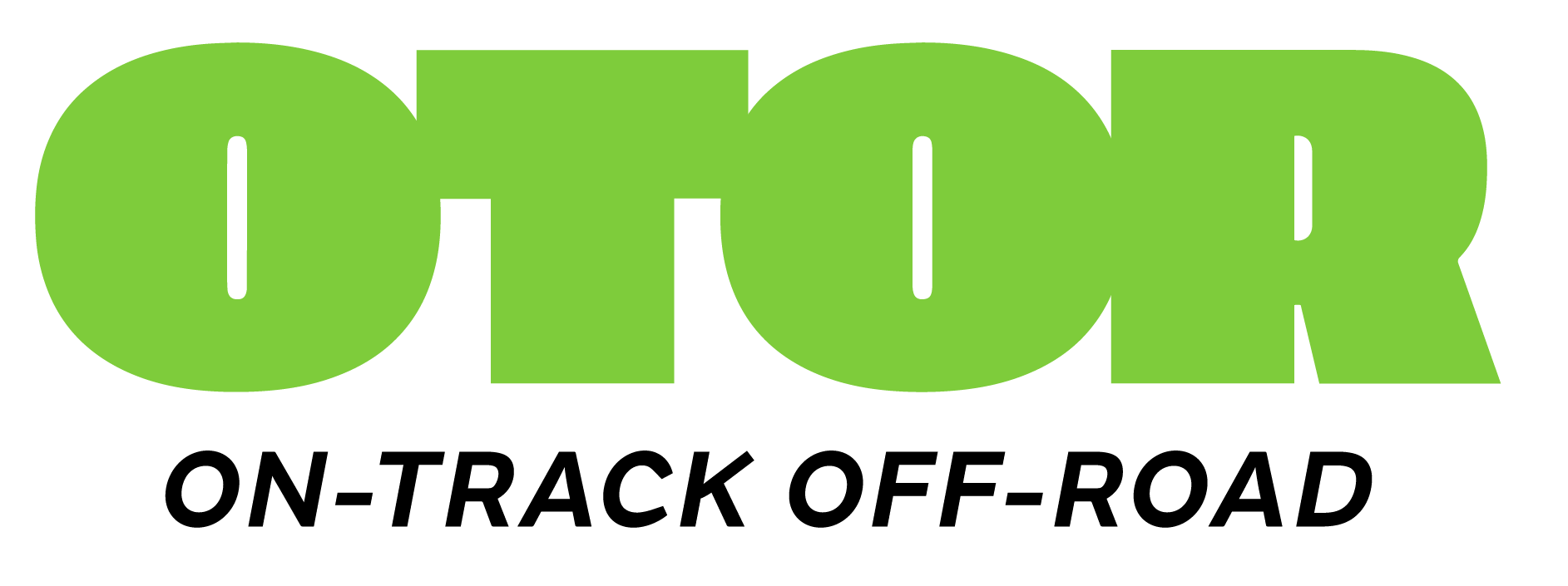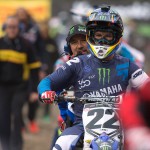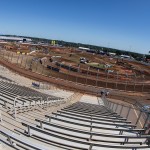32 years old and Gareth Swanepoel cuts the sort of figure that makes you think the South African could still do a job on a dirt bike. ‘Swanie’ sits down in the Alpinestars hospitality at Maggiora for the Motocross of Nations and where his fairytale project together with Cooper Webb would go on to hit another dramatic kink in the road. A veteran of more than a decade of Grand Prix racing and two MX2 Grand Prix podium finishes eventually led to a belated attempt at AMA Supercross and motocross (more podiums) and the birth of a solid link with the Star Racing Yamaha that helped a transition to super-fit athlete into the harbinger of form and physical prowess for others on the team as a trainer/mentor/coach.
We want to talk about the second phase of Swanie’s professional career but thinking back to his riding days when he steered factory Kawasaki machinery and was poorly treated in his final year in Grand Prix in 2010 as part of the foundering CAS Honda squad then he probably should have achieved more. In 2007 he was the fifth best 250cc rider in the world but a succession of injuries conspired to wreck any consistent rhythm the former Belgium-resident aspired to maintain and therefore remain at the peak of the category. He was an accomplished sand racer and renowned for his hard work, training and dedication; clearly attributes he was able to transfer into his relatively new vocation. Ironically it would also be the pain and anguish of those many injuries that also caused Swanepoel to open his eyes and horizons to other forms of preparation and orientated him further towards the skills and possibilities to impart that wisdom onto others.
Gareth might be laying some firm roots with the Star team and also in Yamaha but it is his work in conjunction with AMA 250SX and 250MX Champion Webb that has seen his star rise once more. Only a few hours before the 70th MXoN (a contest in which he first represented his country back in 2001) would begin we talked about timing, training and the taming of other motocrossers…
So you were racing Grands Prix, went to the U.S. then transitioned into training and working with other riders. How was stopping competition and finding a new niche?
It was kinda slow! I had a pretty successful few years in the U.S. I really enjoyed it but in my last year with Yamaha I had some bad injuries. Then I spent a year a bit in limbo. I rode for a small team and did a little bit of racing in Australia. For a brief time I was stressing about what I was going to do, but halfway through that year Bobby Regan from Star Racing [Team Owner] called me and said: “you should train guys…” Then when I came back from Australia I had to have surgery on my knee. I literally got home from the hospital and he happened to call me. He said, “What are you doing?” I said, “I just had surgery on my knee.” He said, “You should train Cooper Webb next year.” So I gave Cooper a call and he said: “I’m going to be in California next week.” I wasn’t sure if he was blowing me off or not. Then he called me that day. We had a good meeting. I said to him: “I can train you and I believe I can help you do what you got to do, but if you don’t intend on winning then don’t waste my time.” That’s what sparked him and realized ‘this guy’s serious, this is the guy I need to train with’. We basically started the next day, and haven’t stopped since then.
Were you interested in the training and physical preparation side for other athletes or was it a direction you had to think about?
I had worked with a lot of good trainers in Europe. When I went to the States I did a lot of things differently because I had so many injuries and I kind of started simplifying things, and I started to look at it from a different aspect. I’m like, ‘okay, I can’t do the stuff I used to be able to do…so what I can do to still get the most out of everything?’ And then I started getting better and stronger and I was like, ‘wow’. It wasn’t really something I was planning on doing…but when it was brought up to me I felt that I had done so many different things and I could see in America especially that they were so – in my opinion – far behind. Obviously Aldon [Baker] has got it figured out. I was pretty sure if I could help Cooper with the kind of stuff I was doing at the end of my career, he was going to get to where he needs to be a lot quicker.
Do you think it was a combination then of the trainers you’d worked with in Europe and then those injuries that gave you a little bit of a skill of flexibility and awareness?
Exactly. So basically all the stuff I learned from Europe, their theory and knowledge and just everything I took from them…
Can you give an example?
Just the way the fitness tests are done in America. You think they’re high tech but they’re really not. In America it’s just all intensity, and they don’t have any kind of specific training. They’re just intense. The harder you train, the better you’ll be: that kind of mentality. So I think taking what I’ve learned from Europe in forming a programme around myself, simplifing things and documenting things to improve and extend the last few years of my career kind of prepared me for doing it for someone else.
Having that knowledge in your head or planned on an iPad is one thing but then imparting it and motivating and working with another individual is a whole other game…
It is. It’s kind of weird…








